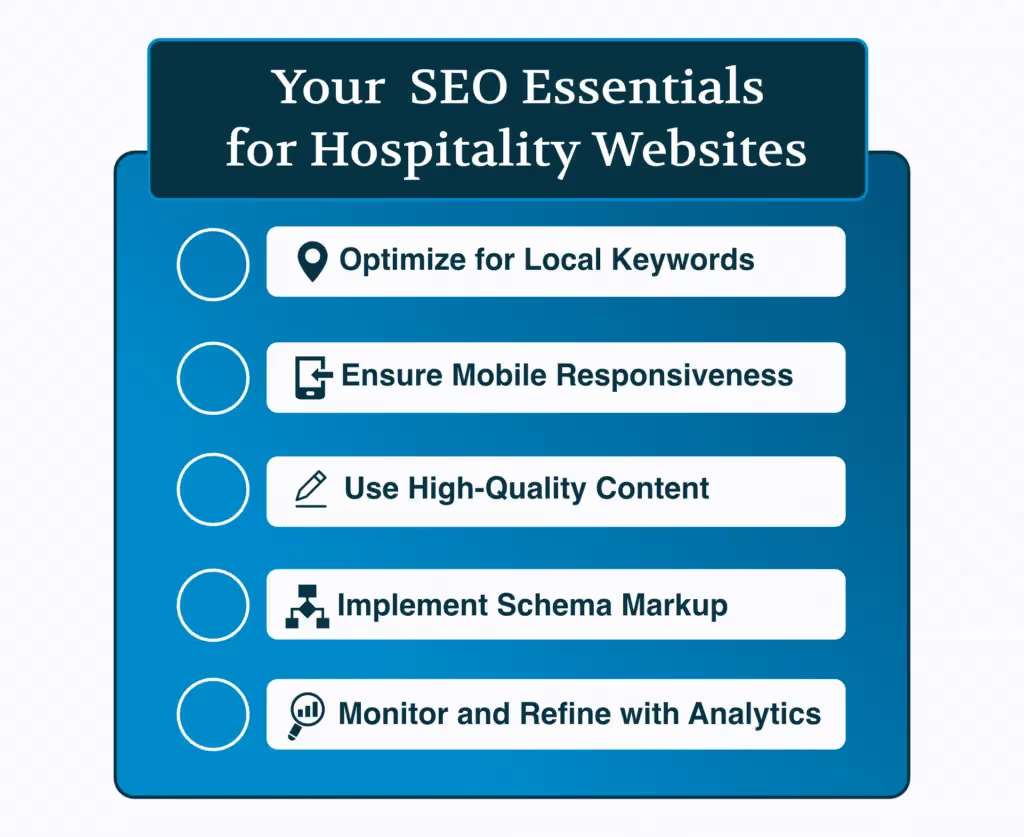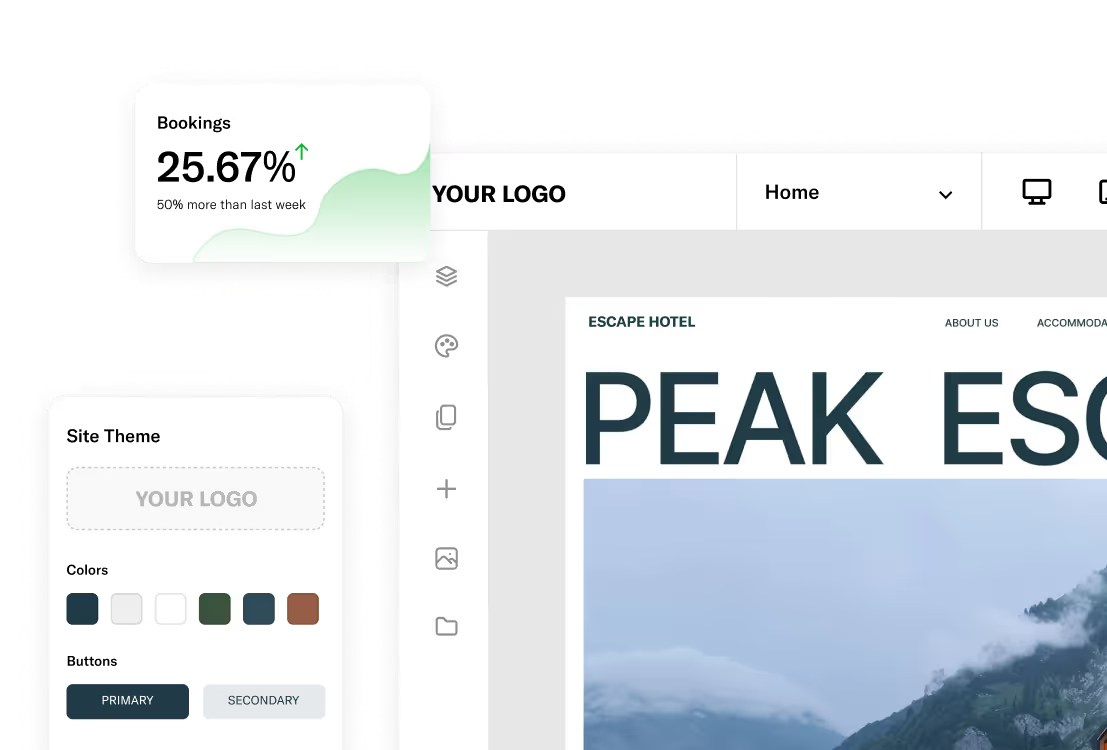Table of Contents
Join Thousands of Hotels Thriving with roommaster
The transition to roommaster is straightforward and efficient. Our implementation team handles data migration including reservations, guest profiles, and historical information.
Most travelers begin their journey online, searching for accommodations, reviews, and exclusive offers. To capture their attention and drive bookings, hospitality websites must be optimized for search engines. This blog will explore effective SEO strategies to ensure your hotel website not only ranks well but also attracts and converts visitors.
Search Engine Optimization (SEO) ensures your website appears prominently in search engine results when potential guests are looking for accommodations. With 75% of users never scrolling past the first page of search results, ranking high is critical to driving organic traffic to your website. For hotels, SEO is about more than visibility—it’s about competing effectively with OTAs and converting those clicks into direct bookings.

Local SEO focuses on ensuring your hotel appears in searches specific to your geographic area. When someone searches for “hotels near [destination],” you want your property to appear at the top of the results. Tips for Local SEO:
With mobile devices accounting for more than half of global web traffic, having a mobile-friendly website is crucial. Google prioritizes mobile-first indexing, meaning it ranks websites based on their mobile versions. Mobile SEO Checklist:
Content remains king in SEO. Providing valuable, engaging content not only attracts visitors but also keeps them on your site longer, improving your search rankings. Ideas for Hospitality Content:
Long-tail keywords are more specific phrases that travelers are likely to search for, such as “pet-friendly boutique hotels in NYC” instead of just “hotels in NYC.” These keywords are less competitive and often attract highly motivated travelers. How to Identify Long-Tail Keywords:
Backlinks—links from other reputable websites to your own—are a major factor in SEO rankings. For hotels, backlinks from travel blogs, tourism websites, and local directories can significantly boost your visibility. How to Earn Backlinks:
Schema markup is a type of code that helps search engines understand your content better. For hotels, this includes details like pricing, reviews, availability, and amenities. Examples of Schema Markup:
{{hotel-website-builder}}
With the rise of smart speakers and voice assistants, optimizing for voice search is becoming increasingly important. Voice search queries are often longer and more conversational than text searches. For example, instead of typing “hotels in Orlando,” a guest might ask, “What are the best family-friendly hotels in Orlando with free breakfast?”
Why It Matters: Hotels that optimize for voice search can capture a growing segment of travelers who prefer this hands-free convenience.
Social media platforms indirectly impact SEO by driving traffic to your website, increasing brand visibility, and generating backlinks. By sharing engaging content, hotels can boost their search rankings while connecting with potential guests.
Example Strategy: Run a campaign encouraging guests to post their favorite travel photos with a branded hashtag. Select winners for exclusive discounts, and feature their posts on your social media and website.
To enhance your SEO strategy further, it’s essential to use data to refine your approach continuously. Analytics tools such as Google Analytics and Search Console provide invaluable insights into your website's performance, highlighting areas for improvement and opportunities to capitalize on. How to Use Data for SEO Optimization
Why It Matters Data-driven insights empower hotels to make informed decisions, ensuring their SEO strategy evolves alongside changes in traveler behavior and search engine algorithms.
SEO improves your hotel’s online visibility, helping travelers discover your property when searching for accommodations, local attractions, or amenities—leading to more direct bookings.
Local SEO focuses on attracting nearby or destination-based searches (e.g., “hotels near downtown Toronto”), while general SEO targets broader keywords relevant to your property type or audience.
Google prioritizes mobile-friendly websites through mobile-first indexing. A responsive, fast-loading site enhances both user experience and search ranking performance.
Long-tail keywords are detailed search phrases used by travelers closer to booking. They attract highly relevant traffic and face less competition than short, generic terms.
Q5: How do backlinks help hotel SEO?
Backlinks act as endorsements from other sites. Links from trusted travel blogs, tourism boards, or local business directories improve domain authority and ranking potential.
As SEO evolves, hoteliers must adapt to trends like voice search optimization, AI-driven content strategies, and advanced analytics to remain competitive. Staying ahead of these changes ensures your website continues to rank highly and attract the right audience.
{{cta-strip}}

The transition to roommaster is straightforward and efficient. Our implementation team handles data migration including reservations, guest profiles, and historical information.
See how roommaster's unified platform can work for your property. Our team will walk you through features tailored to your specific needs and operations.